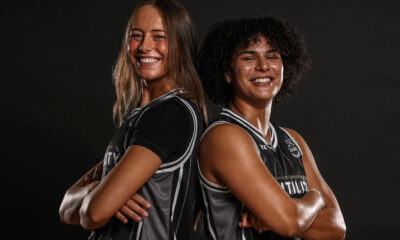Lifestyle
Should you counting Macros?

By Brian Foley from Activate Fitness
So you hear about these three little things called “macros” by surfing the web, social media, or even from someone in your social circle. Macronutrients, aka macros, are proteins, carbohydrates, and fats - these are the three primary sources of calories consumed. Let’s start with a bit of information about each macro.
Protein
Proteins are typically things like meat but also come from a variety of other sources. Proteins provide our body’s structure and components of enzymes, regulate body function and immune system health, and aids in hormone regulation. Calories from protein should comprise about 30% of our daily calorie intake.
Carbohydrates
Carbohydrates vary depending on the source. These are things like fruit, sugar, vegetables, and much more. Carbohydrates, aka Carbs, are our body’s leading source of fuel. Carbs keep protein from being used as energy and aids in the oxidation (breakdown) of fat. Calories from carbohydrates should comprise of no more than 40% of our daily calorie intake.
Fats
Fats come from plant and animal-based sources. Fats are a component of our membranes, aids in absorbing fat-soluble vitamins and is used as a source of energy. Calories from fat should comprise about 30% of our daily calorie intake.
Now that you know a bit more about them - should you be counting them and what does that mean? So what is it? Macro counting is calorie counting, but with more specific targets to stay within a certain range of each macro. These numbers are determined in various ways but the main idea behind them is calories in versus calories out. In order to lose weight, you need to expend more energy than you consume.
Let’s move on to the most important question - should you be counting macros?
For most people, logging food and counting macros will provide them with the guidance they need to meet their long term goals, but it isn’t always the best solution for everyone.
Here are a few things to consider:
* Does it fit in with your current lifestyle?
* Do you want to weigh and measure the foods in order to log them?
* Do you need the added level of accountability?
* Can you consistently log everything you consume every single day?
If logging your food doesn’t seem like the right fit for you, then it probably isn’t. Here are a few things I look for in clients before asking them to log food:
* Consistently eating vegetables
* Eating every 3 to 4 hours
* Has a good daily routine and can easily add this task (as far as time is concerned)
* Is cooking and preparing at least 50-60% of their meals at home.
Do a quick self-analysis by answering these questions to determine whether or not you think macro counting is ideal for you.
Not sure or want to get more help?
Just book a free intro at www.activate.ie and let one of our experienced nutrition coaches guide you to the right answer for you and your goals!
News
Killarney couples renew vows at St Mary’s Cathedral
Several couples celebrating significant wedding anniversaries gathered last Saturday at St Mary’s Cathedral to renew their vows. The annual event, organised by Killarney Parish Administrator Fr Kieran O’Brien, is a […]
News
Trainee chef wins two medals at Chef Ireland Competition
Iryna Kravchenko, a chef trainee from Killarney studying on the City & Guilds Diploma in Food Production and Cooking Programme, has won two medals at the Chef Ireland Competition. The […]
























